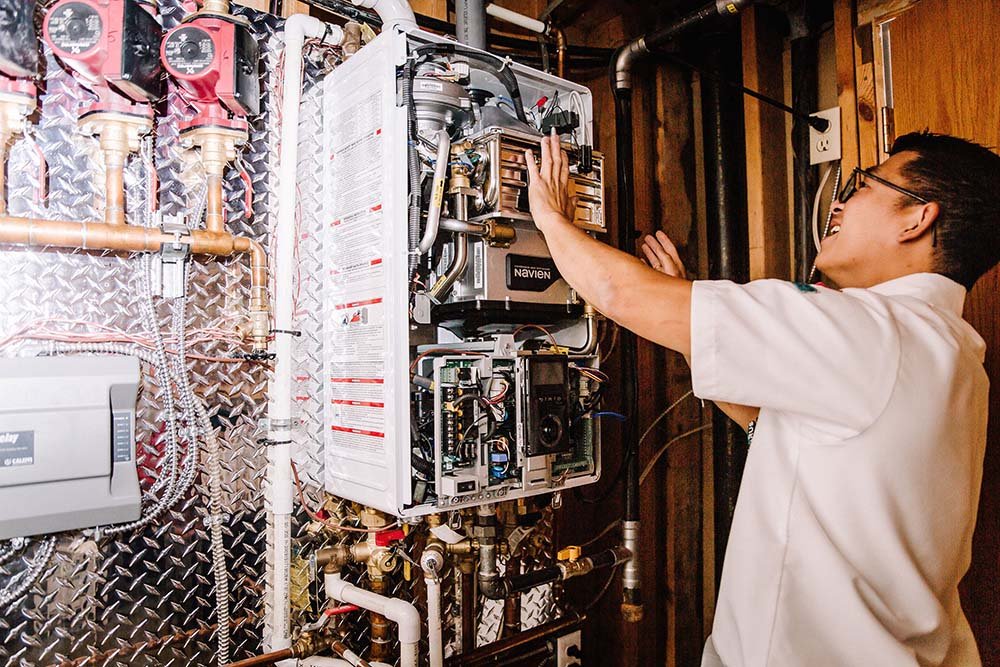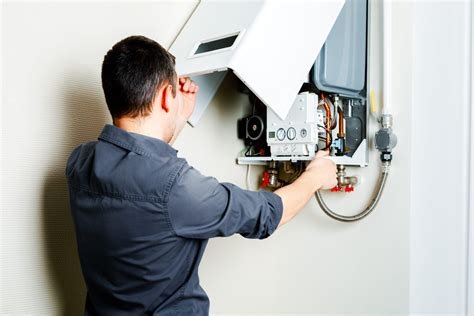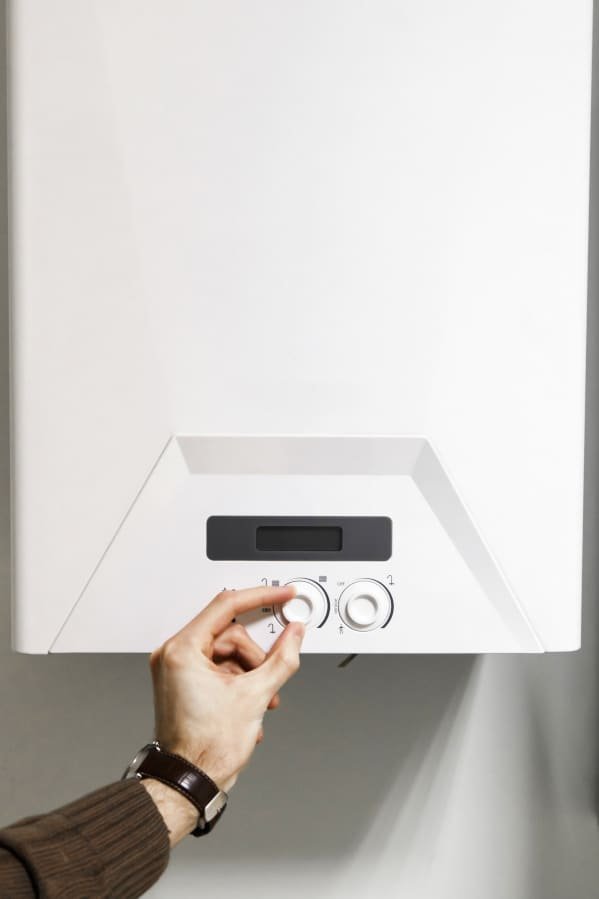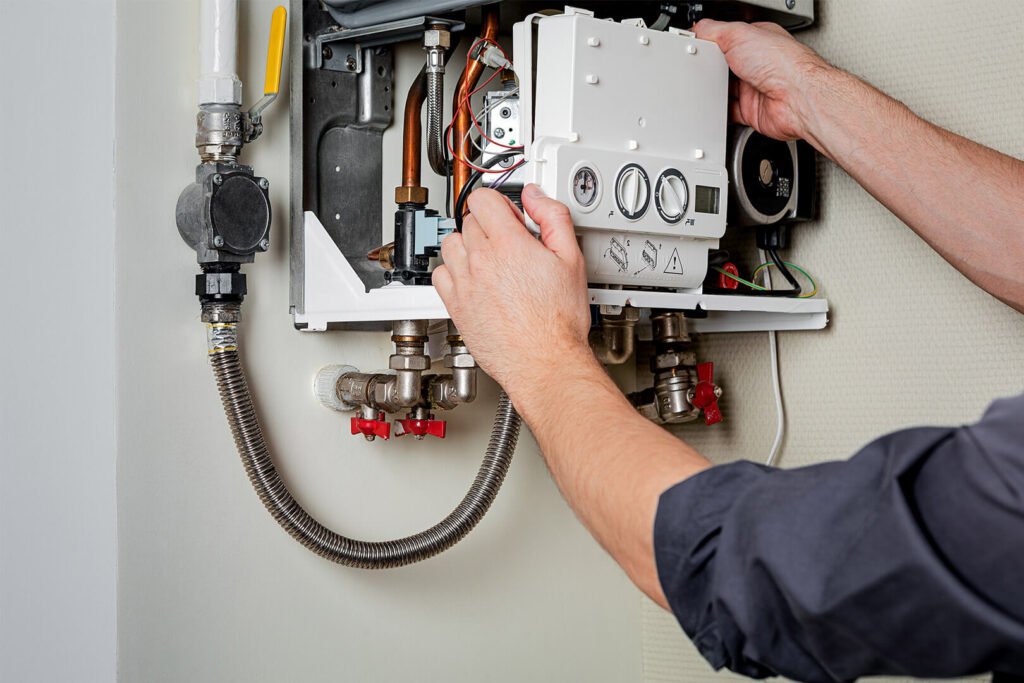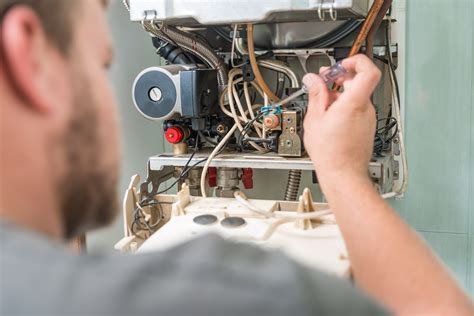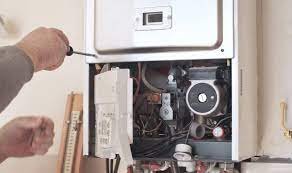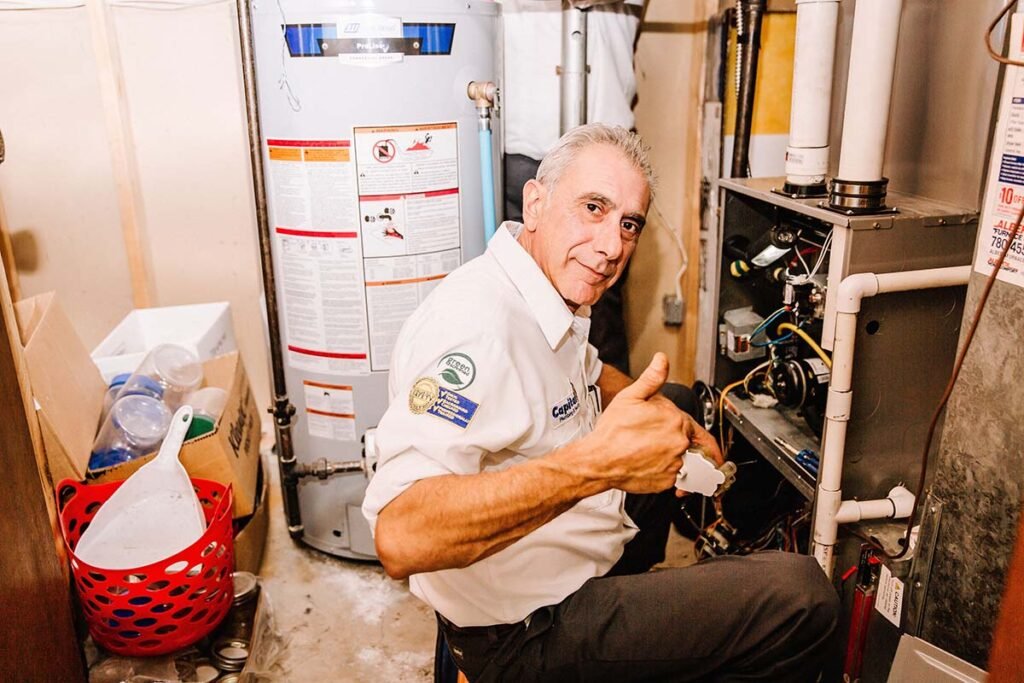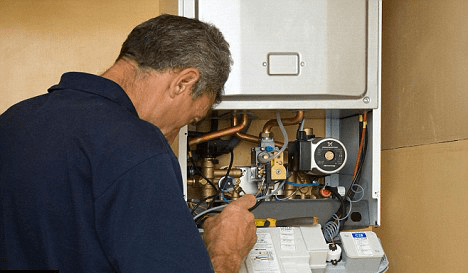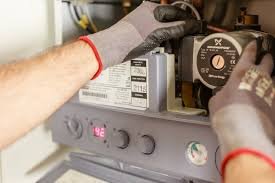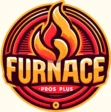Furnace Installation Morinville - Your Trusted Heating Experts
Furnace Pros Plus is your trusted partner for all your heating needs. With years of experience, we concentrate on providing top-notch heating solutions to keep your home warm and comfy. Our group of skilled service technicians devote themselves to supplying professional heater installation, maintenance, and repair work services. We comprehend the value of an appropriately working heater, especially throughout the chillier months. We focus on efficiency, price, and consumer fulfillment in every job (huge or little). Whether you require a new heater, a routine check-up, or emergency situation repair work, depend on Furnace Pros Plus for dependable and effective heating services that guarantee comfort and comfort.
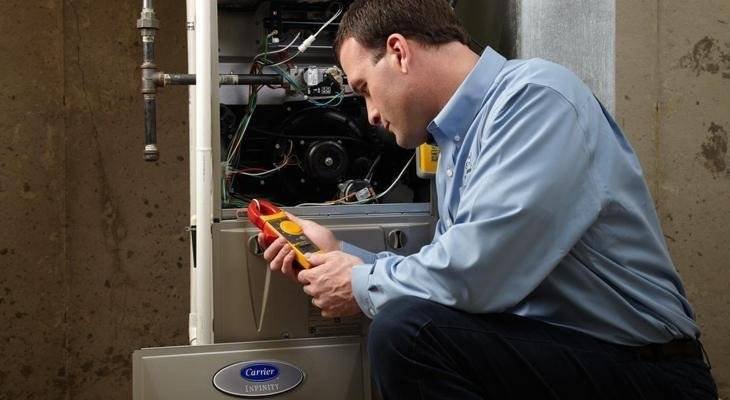
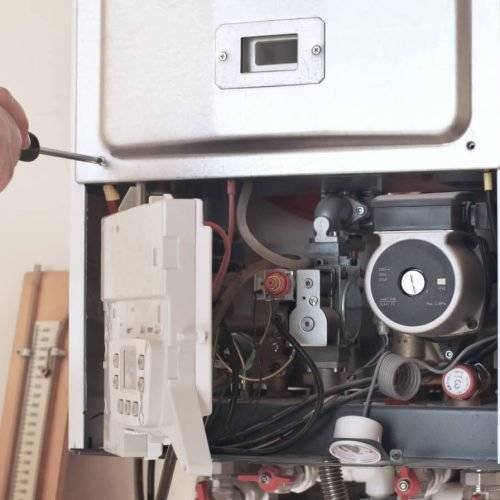
Who Are We?
Domestic Furnace Installations & Repairs
Furnace Pros Plus stands apart as the premier heater installation and repair work business in Morinville, due to its dedication to quality, consumer fulfillment, and knowledge. This reputable company has built a strong track record by consistently providing trusted and effective heater solutions customized to the distinct requirements of each consumer.
Among the crucial aspects that set Furnace Pros Plus apart is its group of highly skilled and qualified service technicians. Each technician brings a wealth of experience and is rigorously trained to handle a large range of heater systems, from older models to the current innovations. This ensures that no matter the type or intricacy of the heater, Furnace Pros Plus has the knowledge to efficiently diagnose and deal with any concerns.
Additionally, Furnace Pros Plus puts a high priority on client service. The company understands that heater issues can be disruptive, particularly throughout the harsh Morinville winter seasons. As a result, they offer prompt and trusted service, guaranteeing that their service technicians are offered 24/7 to resolve any emergencies. This responsiveness decreases downtime and ensures that homes and organizations are kept warm and comfy without considerable delays.
Furnace Pros Plus also sticks out for its dedication to utilizing just premium parts and items. By partnering with leading producers, the company ensures that every installation, repair work, or maintenance task satisfies the highest requirements of resilience and efficiency. This not just boosts the longevity of the heaters but also improves their performance and energy efficiency, which can result in considerable cost savings for clients with time.
The company’s devotion to openness and reasonable pricing further boosts its track record. Furnace Pros Plus supplies detailed, upfront quotes without surprise charges, guaranteeing that clients comprehend what they are paying for and can make informed choices about their heater needs.
Last But Not Least, Furnace Pros Plus contributes to the local community by staying environmentally mindful and promoting energy-efficient solutions. By recommending clients on the very best practices and items for reducing energy usage, they help Morinville homeowners and organizations minimize their environmental impact and delight in much better air quality.
All these aspects integrate to make Furnace Pros Plus the premier choice for anybody trying to find dependable and premium heater installation and repair work services in Morinville, Alberta
How can we help you?
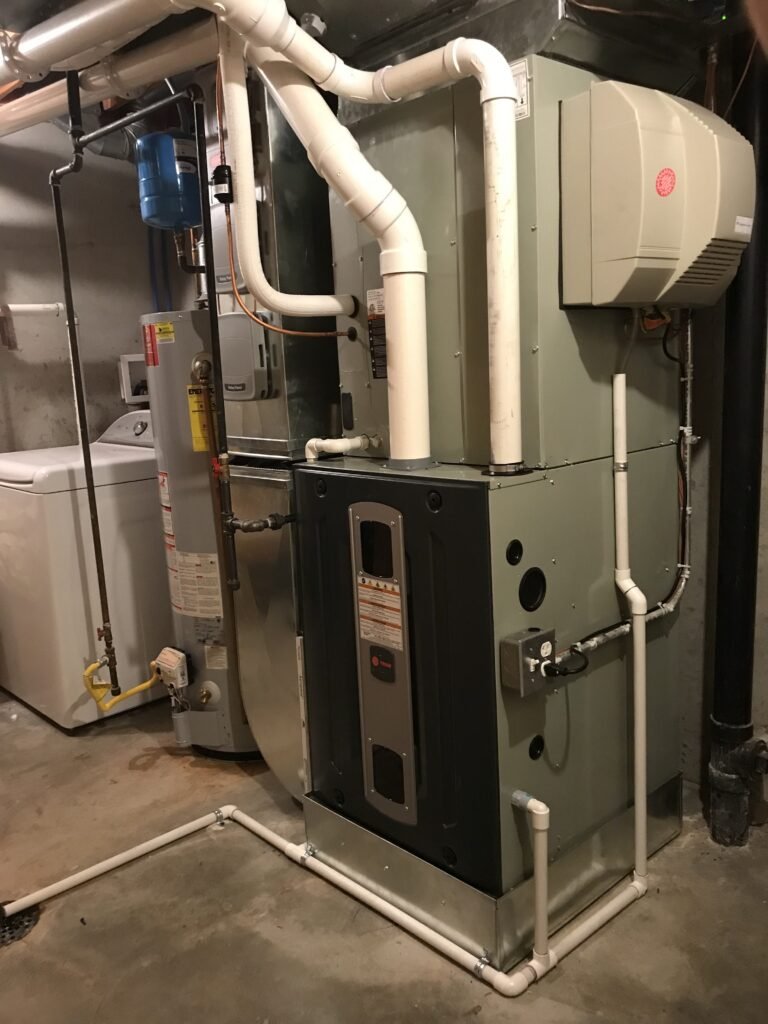
Understanding the Cost of Installing a New Furnace
Intro
An operating heater is vital when it comes to preserving a comfy and warm home throughout the chillier months. However, there comes a time when setting up a new heater is inevitable.
Understanding the costs associated with this process is vital for property owners to strategy and spending plan appropriately. This comprehensive guide checks out the various aspects influencing the cost of setting up a new heater.
Aspects Influencing Furnace Installation Costs
Kind of Furnace:
- Gas Heating Systems: Popular for their efficiency, they typically cost more upfront but offer lower operating costs.
- Electric Furnaces: They are less expensive than gas heaters. However, electric models tend to have higher functional costs due to electrical power prices.
- Oil Furnaces: These are less typical and can be more expensive due to the cost of oil.
Furnace Size and Capability
- Square Footage: The size of your home directly impacts the capacity required for the heater.
- BTU Ranking: Greater BTU ratings relate to more effective heaters, which can increase the cost.
Efficiency Ratings
Annual Fuel Usage Efficiency (AFUE):
Greater AFUE ratings indicate much better efficiency but also featured a greater price.
Brand and Quality
Top-tier brands typically command higher prices due to their track record for quality and longevity.
Installation Intricacy
- Existing System: Updating from an old system may need additional work and cost.
- Ductwork: The condition and design of existing ductwork can impact installation intricacy.
- Ease of access: Difficult access to the installation site can increase labour costs.
Labour Costs
Labour costs vary by area. In addition, the intricacy of the installation can affect labour costs.
Additional Costs to Think About
- Permits: Some regions need authorizations for heater installation.
- Inspections: City laws may need post-installation inspections for security compliance.
- Thermostats: Updating to a clever thermostat can sustain additional costs.
Typical Cost of Furnace Replacement
While prices can vary extensively based on the aspects pointed out above, here are some typical cost ranges for heater installation:
- Gas Furnaces: $2,000 to $5,000.
- Electric Furnaces: $1,000 to $2,500.
- Oil Furnaces: $2,500 to $6,000.
These are rough estimates and can vary based on specific home requirements.
Cost-Saving Tips.
Research study and Compare.
Obtain several quotes from various specialists to guarantee competitive pricing.
Seek Rebates and Rewards.
Search for energy efficiency refunds used by utility business or government programs.
Think About Long-Term Savings.
Investing in a more effective heater can lower energy costs with time.
Conclusion
Setting up a new heater is a significant financial investment, and comprehending the costs included is vital for any property owner. By considering the kind of heater, installation intricacy, labour costs, and additional expenses, property owners can much better get ready for this essential upgrade. Keep in mind to seek several quotes, check out offered refunds, and think about long-lasting energy savings when deciding.
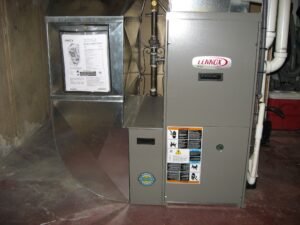
The Right Dimension Furnace for Your Home: A Comprehensive Guide
Intro
Selecting the best size heater for your home is vital for guaranteeing effective heating and comfort throughout the chillier months. A heater that’s too little won’t keep your house warm, while one that’s too large can cause unneeded energy usage and irregular heating. This guide will help you determine the perfect heater size for your home.
Understanding Furnace Sizing: BTU and Efficiency
We determine the size of a heating system in British Thermal Units (BTU). One BTU is the energy required to raise the temperature of one pound of water by one degree Fahrenheit. When selecting a heating system, 2 crucial aspects play a role: the BTU ranking, showing the heater’s heating capacity, and its efficiency ranking, measured in Annual Fuel Usage Efficiency (AFUE).
Determining Your Home’s Heating Needs
You need to compute your home’s heating needs to determine the correct heater size. The estimation considers aspects like square video footage, environment zone, insulation quality, window type, and house design. Generally, you require roughly 30-60 BTUs per square foot. However, this varies based on your home’s specific characteristics.
Environment Zone and Its Impact on Furnace Size
Your geographical area considerably affects the heater size needed. Homes in chillier areas, such as [area], need more BTUs per square foot than those in milder environments. Speak with a heating specialist for specific suggestions.
The Role of Home Insulation in Furnace Sizing
Good insulation minimizes the quantity of heat loss, indicating you can select a smaller sized heater. Examine your home’s insulation in the walls, attic, and windows. Updating insulation can be a cost-efficient way to lower heating requirements.
Considerations for Various Kinds Of Heating Systems
There are various kinds of heaters, like gas, electric, and oil. Each type has distinct sizing factors to consider. Gas heaters are common and effective, electric heaters are more uncomplicated and more secure but typically more expensive to run, and specialists install oil heaters where gas isn’t offered.
Importance of Expert Heating And Cooling Evaluation
A professional HVAC assessment is invaluable. Service technicians think about all variables, consisting of ductwork and home design, to suggest the ideal heater size. They can carry out a Manual J estimation, the industry standard for figuring out heating and cooling loads.
Energy Efficiency and Cost-Effectiveness
Selecting a heating system with a high AFUE ranking is vital for energy efficiency and cost savings. Modern heaters have AFUE ratings in between 80% and 98%, showing the percentage of fuel converted into heating. While high-efficiency heaters are more expensive upfront, they can result in considerable savings in the long run.
Dealing With Typical Misconceptions About Furnace Sizing
A typical misunderstanding is that a bigger heater is always much better. However, a large heater can result in short cycling, where the heater often switches on and off, reducing efficiency and lifespan. Alternatively, a small heater has a hard time to warm your home properly.
Long-Term Benefits of the Right-Sized Furnace
Selecting the right-sized heater has long-lasting benefits, consisting of consistent comfort, lower energy costs, lowered carbon footprint, and fewer maintenance concerns. It’s a balance in between upfront costs and long-lasting savings.
Conclusion: Making an Educated Choice
Selecting the best size heater is a choice that impacts your home’s comfort and energy efficiency for several years to come. By comprehending the essentials of heater sizing and seeking expert guidance, you can make an educated decision that ensures ideal heating for your home.
Keep in mind, the key to an efficient and comfy home depend on selecting the best heater and routine maintenance and considering other aspects like insulation and environment. With this comprehensive guide, you are fully equipped to choose the perfect heater for your home, supplying warmth and comfort for many winter seasons.

Replace vs Repair Furnace: A Sweeping Guide
Intro
Deciding whether to change or repair your heater is a significant decision for any property owner. The choice impacts your immediate comfort and security and has long-lasting financial implications. This comprehensive guide will check out various elements to think about, helping you make an informed decision.
Understanding Your Furnace
Lifespan and Types
Furnaces typically have a life expectancy of 15-20 years. The two primary types are gas and electric, each with various maintenance and functional costs.
Indications of Difficulties
Typical signs that your heater may require attention include unusual noises, irregular heating, and increased energy costs.
When to Think About Repairing Your Furnace
Repair is typically the very best choice for minor concerns or heaters that are fairly new and still under service warranty.
Cost-Effectiveness
Repairing can be more cost-efficient for minor concerns. However, regular repair work might show a deeper issue.
Environmental Effect
Repairs typically have a lower environmental impact than replacing the whole system.
When Replacement is the Very Best Choice
You should think about replacement if your heater is near the end of its lifespan, repair work are becoming progressively expensive, or if it could be more energy effective.
Long-term Cost Savings
While the initial cost is higher, a new heater can be more energy-efficient, conserving you money on energy costs.
Technological Advancements
More recent models include advanced technology, such as clever thermostats, which offer much better temperature level control and efficiency.
Weighing Your Alternatives
Cost Analysis
Compare the cost of repair work with time versus the one-time expense of a new heater.
Energy Efficiency
Examine how your current heater’s efficiency is impacting your energy costs.
Home Value
Consider how a new heater might increase the worth of your home, especially if you plan to sell in the future.
Professional Advice
Looking For Expert Viewpoint
Speak with heating and cooling experts to examine the state of your current heater and get estimates for repair work and replacement.
Importance of Routine Upkeep
Routine maintenance can extend the life of your heater, whether you decide to repair or change it.
Conclusion
In conclusion, deciding to repair or change your heater depends upon various aspects, consisting of age, condition, cost, and energy efficiency. By considering these aspects and seeking expert recommendations, you can make a decision that ensures comfort, security, and financial vigilance for your home.
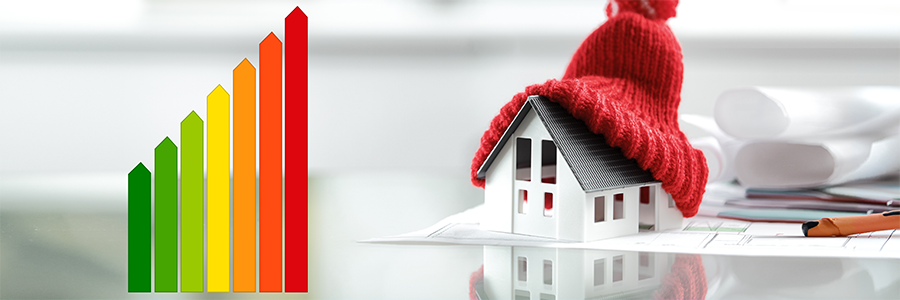
What Season is the Cheapest to Replace The Furnace?
Will a New Energy-Efficient Furnace Reduce Your Home Insurance?
Intro
Home maintenance can be a significant financial investment, especially when it includes vital systems like heating. Among the most significant costs property owners face is replacing their heater. However, timing this replacement can result in considerable savings. This article checks out the very best season to change your heater, considering cost-effectiveness and usefulness.
Understanding Furnace Replacements
The Requirement for Replacement
Before diving into timing, it’s necessary to comprehend why and when you should change your heater. Typical signs include regular repair work, heating inefficiency, and the system’s age (generally beyond 15-20 years). Changing an out-of-date or malfunctioning heater improves heating efficiency and ensures security and comfort throughout chillier months.
Aspects Influencing Furnace Costs
Numerous aspects impact heater prices, consisting of the kind of heater, brand name, capacity, and the intricacy of installation. Seasonal demand is another considerable factor, typically ignored, yet it plays an important role in figuring out the cost.
Finest Time for Replacement: Off-Season
Why Pick Off-Season?
The off-season, mainly spring and early fall, is typically the most inexpensive to change a heating system. The demand for heating unit is lower throughout these durations than throughout the peak winter months. Lower demand typically causes more competitive pricing from producers and installers.
Benefits of Off-Season Replacement
- Lower Costs: Lowered demand can result in discount rates and more consumer working out power.
- Availability of Technicians: HVAC service technicians are less busy throughout these times, guaranteeing more flexible scheduling and quicker installation.
- Ample Time for Research study: The off-season offers property owners sufficient time to research various heater models and choices without the pressure of immediate requirement.
Planning Ahead
Making use of the off-season needs preparation. Anticipate the requirement for replacement and schedule it when the demand is low. This insight saves money and prevents the trouble of a heating system breaking down in the middle of winter season.
Winter: The Peak Season
Difficulties of Winter Replacement
- Greater Costs: The demand for heater installation and repair work peaks throughout winter season, resulting in higher prices.
- Hectic Schedules: Finding a technician might be more tough, and you might need to wait longer for a consultation.
- Emergency Replacements: If your heater breaks down in winter season, you might need to select an instant replacement, which leaves little room for cost comparison or settlement.
Other Factors to consider
Energy Efficiency and Rebates
Investing in energy-efficient models might be more expensive upfront but can result in long-lasting savings. Likewise, watch out for refunds and tax credits used for energy-efficient home improvements.
Importance of Routine Upkeep
Routine maintenance can lengthen the life of your heater, postponing the requirement for replacement. It’s a necessary element of home care that you should take note of.
Conclusion
Timing your heater replacement can result in considerable savings. The off-season, particularly spring and early fall, is typically the most cost-efficient duration for this financial investment. Planning, considering energy efficiency, and preserving your current heater can optimize expenses and guarantee a warm, comfy home.
Intro
Homeowners typically contemplate whether updating their home appliances and systems can result in savings on their home insurance premiums. One typical question is whether setting up a new heater decreases home insurance costs. This article explores how a new heater installation might affect your home insurance, using insights into insurance coverage, danger management, and potential savings.
Understanding Home Insurance Premiums
Before diving into the specifics of heaters and insurance, it’s vital to comprehend what aspects affect home insurance premiums. Insurer examine various aspects, consisting of:
- Property Age and Condition: Insurance coverage Agents see newer homes with updated systems as lower risks.
- Place: Geographical area and local environment can considerably impact insurance rates.
- Security Features: The existence of alarms, smoke detectors, and other security gadgets can lower premiums.
The Effect of a New Furnace on Home Insurance
Setting up a new heater in your house can have a number of implications for your home insurance:
- Lowered Danger of Fire and Gas Leakages: Modern heaters with advanced security features minimize risks like fire or gas leaks. This danger reduction can be beneficial in the eyes of insurance service providers.
- Improved Energy Efficiency: Newer heaters are typically more energy-efficient, resulting in lower utility costs and a reduced environmental footprint, indirectly impacting insurance factors to consider.
- Improved Home Value: Updating to a new heater can increase your home’s market price, which might impact the coverage you require.
Possible Insurance Discount Rates
Some insurer offer discount rates for home improvements that lower danger. These might include:
- Protective Device Discounts: You might qualify for a discount rate if your new heater includes advanced security features.
- Green Home Discounts: Some insurance companies offer unique discount rates for setting up energy-efficient appliances.
Paperwork and Appraisal
To utilize a new heater installation for insurance benefits, think about the following:
- Professional Installation: Ensure a licensed expert installs your heater, which can be a prerequisite for insurance benefits.
- Keep Records: Preserve all invoices and documents for the heater purchase and installation.
- Inform Your Insurance Company: Alert your insurance company about the upgrade. They may need an assessment or additional documents.
Factors to consider Before Updating
While a new heater can offer benefits, think about the following:
- Cost vs. Advantage Analysis: Evaluate if the long-lasting savings on insurance and energy costs validate the initial cost of a new heater.
- Insurance Policy Evaluation: Speak with your insurance agent to comprehend how a new heater might specifically affect your policy.
Conclusion
Updating to a new heater can lower your home insurance premiums by reducing danger and boosting your home’s security and efficiency. However, the impact varies based on private insurance coverage and the specific features of the heater. It’s suggested to consult with your insurance company to comprehend the complete benefits and implications of a new heater installation.
Frequently asked questions
Q: Just how much can I save on my home insurance by setting up a new heater?
A: Savings vary based on the insurance company and the specific features of the new heater. Speak with your insurance agent for detailed details.
Q: Exist any specific kinds of heaters that are more beneficial for insurance discount rates?
A: Furnaces with advanced security features, high energy efficiency ratings, and those that satisfy specific environmental requirements are typically more beneficial.
How to Get ready for a Heating System Installation
Setting up a new heater in your house is a significant financial investment and a necessary upgrade to your home. It boosts the comfort of your home and improves energy efficiency. Proper installation preparation is vital to guarantee the installation process is smooth and hassle-free. This article will assist you through the essential steps to get ready for a heating system installation.
Understanding Your Heating Needs
Examining Your Space: The first step is to examine the size of your area and comprehend the heating requirements. A too-large or too-small heater for your home can result in inefficiency and higher energy costs. Consulting with a heating expert to determine the best heater size is crucial.
Selecting the Right Furnace: There are various heaters, consisting of gas, electric, and oil. Each has pros and cons; the choice depends upon your area, spending plan, and individual choice. Research study and consult with experts to make an informed decision.
Pre-Installation Preparation
Selecting a Qualified Installer: We can not overemphasize the value of choosing a qualified and experienced installer. Search for experts with excellent reviews and proper certification. They will guarantee a proper installation and guide you through the process.
Clearing the Location: Ensure the location where you plan to install the heater is clear of any clutter. A tidy location supplies simple access to the installation group and speeds up the process. Eliminate any important or delicate items from the area to avoid accidental damage.
Getting ready for Downtime: Depending on the intricacy of the installation, your heater may be down for a few hours to a day. Plan appropriately, especially if the installation is throughout chillier months.
During Installation
Access to Your Home: Ensure the installers have simple access to your home, which includes guaranteeing that parking is offered and a clear course to the heater area.
Communication: Stay offered to respond to any questions the installers might have. Clear communication can help deal with any concerns rapidly and ensure your installation goes as planned.
Post-Installation Checks
Examine the Installation: Once the installation is total, examine the work with the installer. Ensure that the installation is total which the location is tidy.
Understanding the System: Have the installer describe the functioning of the new heater, consisting of how to change filters and the basic troubleshooting steps.
Warranty and Paperwork: Guarantee you receive all essential documents, consisting of service warranty details and running handbooks. Keep these files in a safe place for future recommendation.
Conclusion
Getting ready for a heating system installation includes comprehending your heating needs, selecting the best heater, and choosing a qualified installer. By following these steps, you can guarantee a problem-free installation process and delight in the comfort and efficiency of your new heater for several years to come. Keep in mind, a little preparation goes a long way in guaranteeing a smooth and effective heater installation.
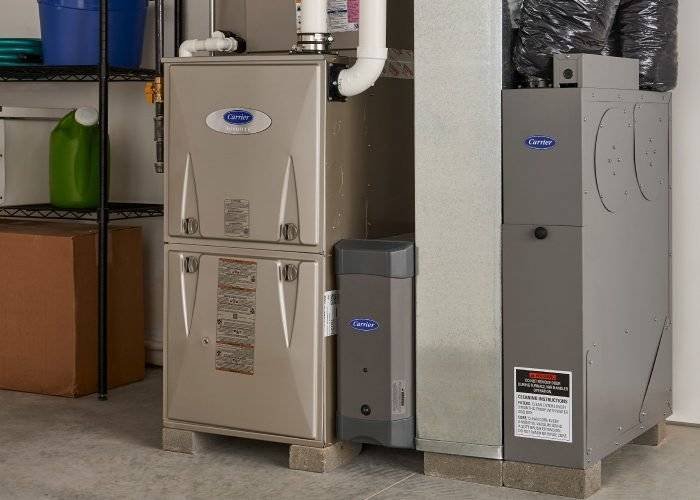
Our Work
